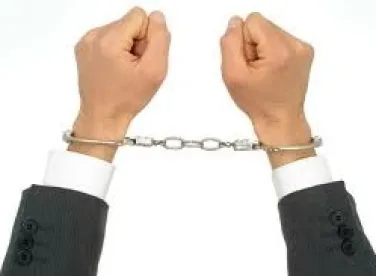On November 29, 2018, Department of Justice (DOJ) Deputy Attorney General Rod Rosenstein (DAG) delivered an important speech to a bar conference on the Foreign Corrupt Practices Act. The DAG described policy changes in DOJ’s corporate enforcement priorities and processes relating to criminal prosecution and civil enforcement cases. The policy changes specifically involved individual criminal and civil liability and cooperation credit for corporate defendants. Although the DAG’s emphasis on pursuing culpable individuals was not entirely new, the described policy changes reflect DOJ’s current priorities and practices. Any corporation subject to DOJ scrutiny, whether actually or potentially and whether civilly or criminally, should be aware of these policy modifications.
Criminal and Civil Policies Addressed by the DAG
First addressing criminal prosecutions, the DAG emphasized DOJ’s view that criminal prosecution of individuals in cases of corporate wrongdoing is the most effective deterrent to corporate criminal misconduct. Accordingly, corporate defendants seeking credit for cooperation with the government in criminal matters must identify substantially culpable individuals whenever possible. The DAG’s statements in this regard were consistent with the focus on prosecution of individuals in the Yates Memorandum authored in 2015 by then-DAG Sally Yates.
The DAG recognized, however, that requiring companies to identify every individual involved in wrongdoing, no matter how minor their role, could delay resolution of criminal investigations. Accordingly, the DAG stated that government investigators will focus on individuals who played substantial roles in the misconduct and/or authorized it, and cooperation credit will be contingent on the identification of those individuals. The DAG encouraged companies seeking cooperation credit to have good-faith discussions with prosecutors about the best methods to gather facts relevant to corporate officials’ misconduct, and explained that companies concealing or intentionally omitting facts in this regard will not receive cooperation credit.
The DAG addressed similar topics relating to the government’s civil enforcement efforts, and the changes from previous policies were more substantial. The DAG again recognized that requiring defendant companies to identify every individual involved in wrongdoing could delay acceptance of civil settlements that remedy harm and deter future violations. The DAG stated that DOJ would return relevant discretion to its civil enforcement lawyers, and allow them for cooperation credit purposes to accept a corporate defendant’s identification of the individuals who were substantially involved in or directed the misconduct. In exercising this discretion, civil enforcement attorneys will be able to offer partial credit in circumstances where it is appropriate, rather than using an “all or nothing” approach suggested in previous policy announcements.
DOJ civil enforcement attorneys also will be permitted as part of corporate civil settlements to negotiate civil releases for individuals who do not warrant further investigation, and the DOJ attorneys may consider an individual defendant’s ability to pay in determining whether to seek a civil judgment. The latter policy is to avoid wasting resources pursuing uncollectible judgments.
The DAG concluded his policy prescriptions by stating that DOJ’s corporate enforcement policies “should encourage companies to implement improved compliance programs, to cooperate in our investigations, to resolve cases expeditiously, and to assist in identifying culpable individuals so that they also can be held accountable where appropriate.”
Significance for Corporations
What does all of this mean in practical terms?
-
First, DOJ will continue to emphasize prosecuting and seeking civil remedies from individuals responsible for corporate wrongdoing. A written policy in this regard began with the Yates Memorandum and continues with the DAG’s speech. This is not to say pursuit of individuals in corporate prosecutions began with Yates, as prosecutors already did so, typically with mixed results. Now, however, it is again an announced policy of DOJ that companies under DOJ scrutiny, whether in civil cases or criminal investigations, should be prepared to address individual liability, particularly when seeking cooperation credit from the government.
-
Second, the DAG’s speech emphasized practical efficiencies and recognized the limitations of a policy that demanded facts about any individual who had anything to do with the wrongdoing, however insubstantial. Such an approach, arguably mandated in previous policy statements, lengthened investigations and delayed resolutions. The revised policy allows cooperation credit only with the identification of substantially involved individuals. The DAG also announced civil enforcement attorneys may consider other practical considerations when addressing individual liability.
Identification of culpable individuals is not always possible, particularly in the criminal context. Identification of a senior corporate official who possessed the requisite criminal intent in a large and diffuse company can be exceedingly difficult. Past prosecutions of large pharmaceutical companies and banks are examples. Because DOJ did not charge a senior corporate official in these situations does not mean that prosecutors at the time did not try to do so – they did.
The lesson for corporations facing DOJ scrutiny, whether criminal or civil, is that they must scrutinize the activities and behavior of corporate officials and employees and candidly inform the government of facts relevant to misconduct, should it exist. Otherwise, cooperation credit may be unavailable.
A robust compliance program also is extremely important. Always a traditional focus of DOJ, compliance programs were specifically identified by the DAG as a key goal of DOJ’s corporate enforcement. The time to implement and maintain a strong compliance program is before a company attracts the government’s attention.



 />i
/>i

